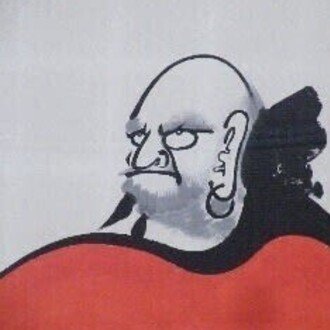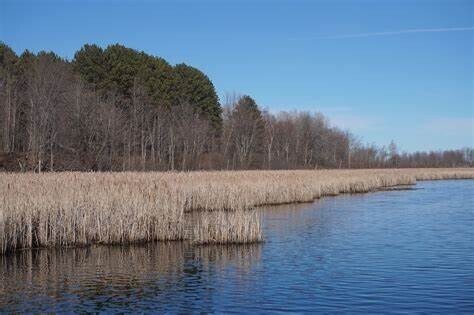
淡海の葦。【湖水の風景Ⅱ】 Sea reeds in the lake
「葺辺(あしべ)には 鶴(たづ)がね鳴きて 湖風(みなとかぜ)寒く吹くらむ 津乎の崎はも」。
淡海(琵琶湖)のヨシは、万葉集に詠われ、イネ同様に古い時代から日本を代表する植物と言われている。琵琶湖でも西の湖、近江八幡市あたり湖岸に多く生息している。
“Cranes squeal in the bushes of reeds, and the lake breeze blows cold”
Yoshi in Tankai (Lake Biwa) is read in Manyoshu. It is plant that is a representative of Japan from the old days like rice. Even in Lake Biwa, it inhabits a lot on the shores of Lake, Omihachiman City, Kosai region.
調べてみると、平安時代までは「葦(アシ)」と呼ばれ、その後、アシが「悪し」を連想させ縁起が悪いとして「葦(ヨシ)」となったようである。
ヨシが使われてモノとして真っ先に思いつくのが「すだれ」である。ヨシの茎で作ったものは「よしず」と呼ばれている。そして古民家の茅葺屋根にもヨシが使われている。さらに、神社などの儀式に用いるたいまつにも松の木の芯とヨシが一緒に束ねてある。
また、ヨシの茎は中が空洞になっているため笛などに利用されたという。古代中国では、楽器である篳篥(ひちりき)の口に当てる部分「舌」にも、また西洋楽器では「リード」部分にも葦が使われているようである。
When I looked it up, it was called "Ashi" until the Heian period, and after that, it seems that Ashi became "Ashi" because it was associated with "bad" and was unlucky. The first thing that comes to mind as a product when Yoshi is used is "sudare". The one made from the stem of Yoshi is called "Yoshizu". Yoshi is also used for the thatched roof of an old folk house. In addition, the torches used for ceremonies such as shrines also have a pine tree core and a pine tree bundled together. In addition, Yoshi's stem is said to have been used as a whistle because it has a hollow inside. In ancient China, it seems that reeds are used for the "tongue" that touches the mouth of the musical instrument Hichiriki, and for the "reed" part of Western musical instruments.
なによりも葦が知られていることで有名なのが、フランスの哲学者 ブレーズ・パスカルが記した「人間は考える葦(アシ)である」という言葉。これなら聞いたことがあるという人も多いのではないだろうか。
しかし、何で人間が "葦" なんだろうと疑問がわいてくる。強風が吹くと茎が折れて倒れやすい弱い植物であるのは間違いない。それが、何で? と。
調べてみると、こんな答えだった。
「人間は自然の中でもっとも弱い一本の葦みたいなものだが、考えるという能力をもった存在だ」と記されていた。実にわかりやすい答えであった。
The most famous thing for the known reeds is the phrase "human beings are reeds that think" written by the French philosopher Blaise Pascal. I think there are many people who have heard of this. However, the question arises as to why humans are "reeds". There is no doubt that it is a weak plant whose stems break easily when strong winds blow. Why is that?
When I looked it up, the answer was: "Human beings are like one of the weakest reeds in nature, but they have the ability to think." It was a very easy-to-understand answer.
レポート& 写真 / 渡邉雄二 写真 / 津の里万葉集の画像より転載 Reported & Photos by Yuji Watanabe
いいなと思ったら応援しよう!



